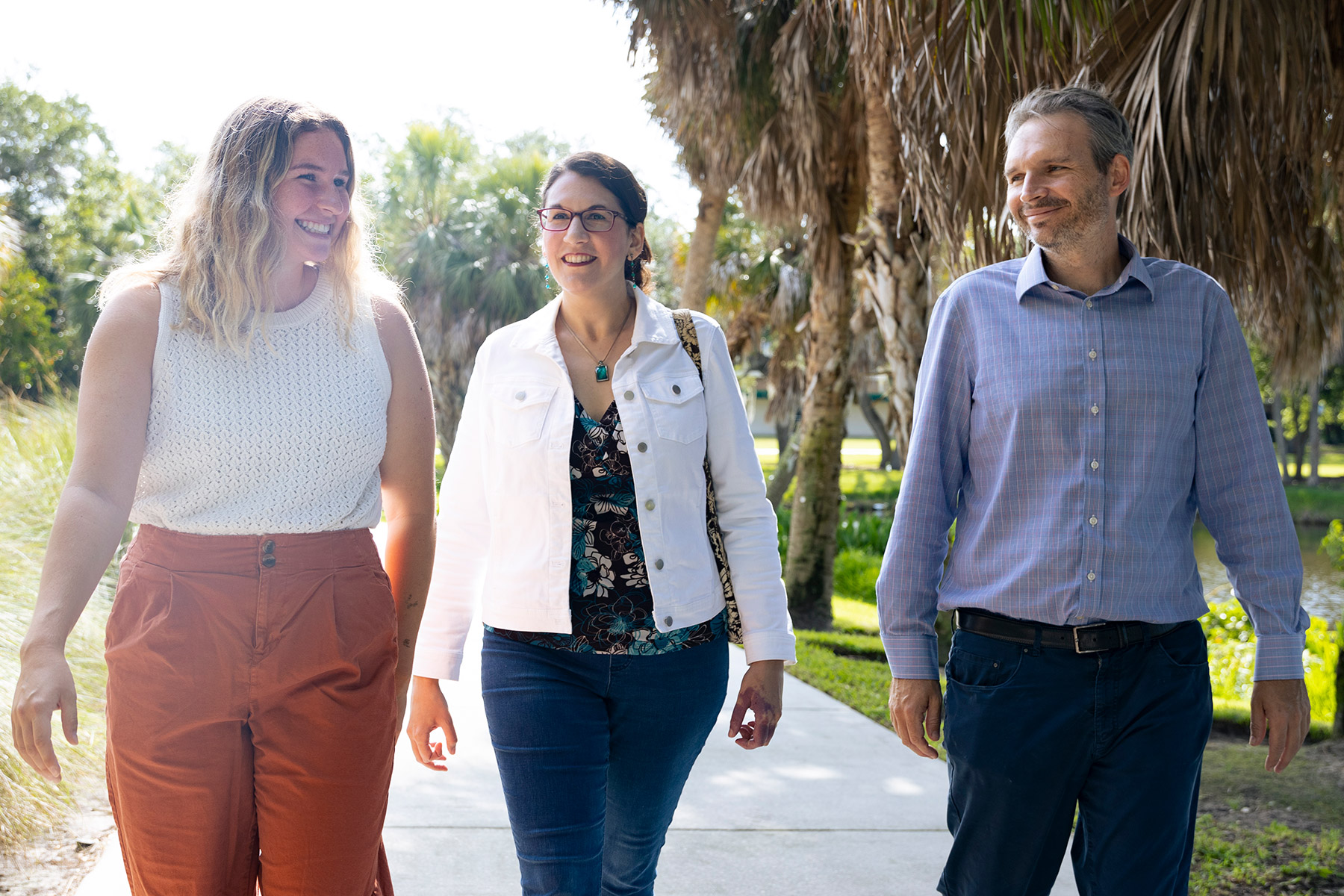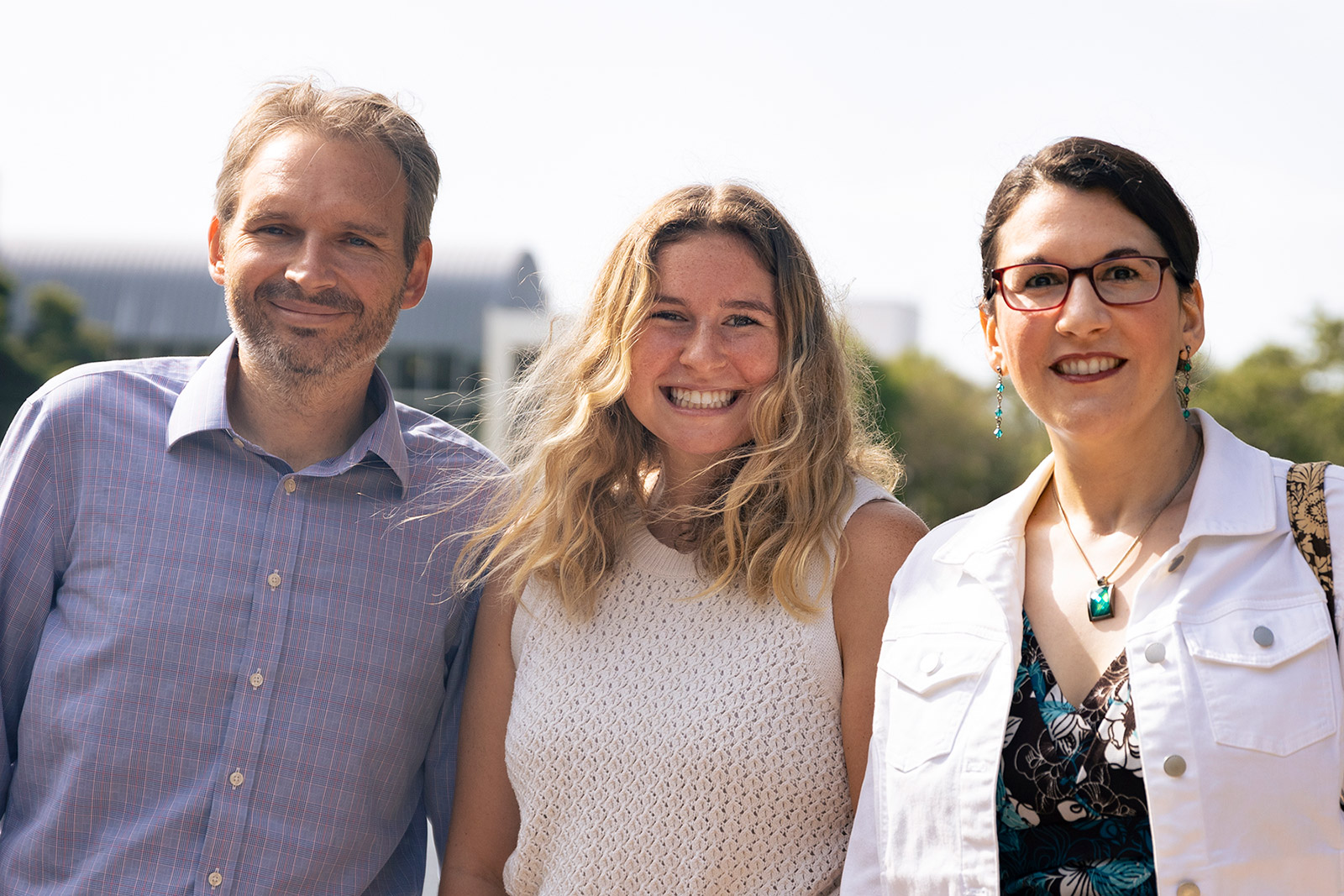The idea came to Eckerd College senior Macey Woodlock during a conversation with a coworker at Integrated Refugee Services, an arm of Gulf Coast Jewish Family and Community Services, a local nonprofit.
“We get a lot of refugees who come there because there’s a lot of conflict in East African countries, and a lot of the refugees speak Swahili,” explains Macey, an international relations and global affairs and environmental studies student from Crystal Lake, Illinois, who volunteers at Gulf Coast. “A coworker from Kenya suggested I learn it, and I thought being able to speak the language of so many clients would be really helpful.”
She’ll get a chance to do just that. Macey recently became the third Eckerd College student to receive a prestigious Boren Scholarship. As part of the Scholarship’s African Flagship Languages Initiative, Macey will travel to Tanzania later this year to study the native language—Swahili. “It’s easy to get used to things the way they are,” Macey says. “This will definitely be something different.”
Eckerd’s previous Boren Scholars and the year and language selected were Lucas Seipp-Williams ’03 (2001, Thai) and Zachary Liggett ’96 (1994, Japanese).
Launched in 2011, the African Flagship Languages Initiative aims to increase the number of Boren Scholars and Fellows engaged in the study of African languages. All Boren students are required to participate in an eight-week full-time intensive program offered in person at the University of Florida in June and July. Students then travel abroad for a full-time overseas immersion fall semester of language and culture study administered by American Councils for International Education.
The Boren Scholarship provides up to $25,000 for students to study language and culture abroad. In exchange, students agree to seek a job with the U.S. government.
Macey’s mentor—Allison Quatrini, Ph.D., assistant professor of political science at Eckerd—helped steer Macey to the award; Quatrini received a Boren Fellowship as a graduate student at George Washington University in 2013 and traveled to mainland China to study Mandarin. “Macey going to Tanzania to study Swahili is enormous,” Quatrini says. “She came to me with the idea, and she’s probably one of the most motivated mentees I’ve had since I’ve been here. Sometimes I have to tell her to slow down and take a breath.”
Quatrini adds that along with employment at the Department of State, Homeland Security or another federal agency, “Macey will also get to meet other people who work in the same part of the world she is, and that’s a network that will continue to support her even after she comes back.”
Thanks to her work at the refugee center, Macey will have a running start when the scholarship begins. “At the center, I tag along when they’re picking refugee families up at the airport, I help set up houses for them, and I help them enroll their children in school,” Macey says. “And we started a garden at a local church that allows refugees to grow the crops that they like and are familiar to them.
“Most of my coworkers are former refugees who speak at least three languages,” Macey adds. “In America, we can get away with speaking just English. But being able to communicate with these individuals makes immigration easier for the refugees. This is really important. My goal is to work for the State Department and use my skills to work with resettlement projects or on regulatory policy.”
Michael Burch, Ph.D., associate professor of political science at Eckerd, has conducted research in Uganda and North Africa, among several other countries. He has Macey in his African Politics class this semester and emphasizes the importance of the Boren Award.
“Macey may not be completely fluent by the end of her time there, but even being able to engage in basic communication breaks down barriers and improves relationships,” Burch says. “Swahili is a very widely spoken language around East Africa; an estimated 60 to 80 million people have it as a first or second language. But so few people from the West attempt to learn the language.
“I’ve always been impressed with Macey’s inquisitiveness and interest in the greater world around her,” Burch adds. “This will open doors that she didn’t even know existed. She could end up with a career in the region dealing with international development or environmental issues. And it’s important for the College because it demonstrates that you can build out a competitive application for these hard-to-achieve scholarships.
“Last year, only 12 students across the country were chosen to go to Tanzania. It’s a very rigorous, very selective program.”














